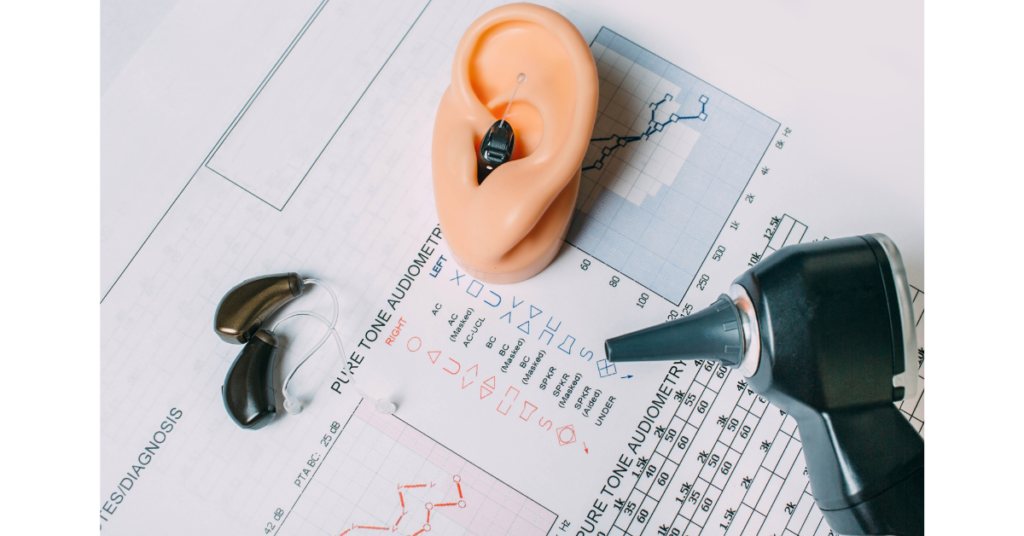Unveiling the Intricate Link Between Hearing Loss and Dementia Risk – A Natural Health Perspective
In the realm of natural health, understanding the complex relationship between hearing loss and cognitive well-being is of paramount importance. Recent research conducted by the University of California San Diego and Kaiser Permanente Washington Health Research Institute has illuminated this connection. In this article, we will delve into these findings and explore holistic strategies for safeguarding hearing, mitigating the risk of dementia, and promoting cognitive vitality, all within the framework of natural health practices.
Hearing Loss and Dementia Risk
Hearing loss is a prevalent concern among the elderly population, affecting more than 60% of adults aged 70 and above in the US. While the connection between hearing loss and an elevated risk of dementia is recognized, the intricate mechanisms underlying this association remain a subject of ongoing research.
Research Insights
Researchers embarked on a groundbreaking study employing hearing assessments and magnetic resonance imaging (MRI) to investigate the potential correlation between hearing impairment and variations in specific brain regions. Published in the Journal of Alzheimer’s Disease on 21 November, 2023, the study findings uncovered compelling revelations.
A total of 130 Participants were enrolled in this observational study from 2003 to 2005, and they presented with hearing impairment that exhibited microstructural disparities in the auditory regions of the temporal lobes. The participants subsequently underwent MRI scans between 2014 and 2016. Alterations were observed in areas of the frontal cortex, responsible for speech and language processing, along with other regions linked to executive function.
The research team, led by Dr Linda K McEvoy, a senior investigator at the Kaiser Permanente Washington Health Research Institute and professor emeritus at the UC San Diego Herbert Wertheim School of Public Health and Human Longevity Science, noted that these results suggest that hearing impairment may lead to changes in brain areas related to sound processing, as well as in areas associated with attention. The additional cognitive effort required to comprehend sounds, and sensory deprivation may induce modifications in the brain, increasing the risk of dementia.
Holistic Approaches for Cognitive Health and Hearing Protection
1. Reducing Cognitive Effort
Encourage the adoption of natural strategies to alleviate the cognitive effort required for sound comprehension. This includes utilizing subtitles while watching television and movies, embracing live captioning or speech-to-text apps, and promoting the use of hearing aids.
2. Quiet Environments
Emphasize the importance of engaging in conversations and activities in tranquil environments, free from excessive noise. This can significantly reduce the cognitive load on the brain.
3. Mindful Hearing Practice
Incorporate mindfulness and meditation techniques to enhance auditory awareness and reduce stress, which can contribute to improved hearing health.
4. Nutritional Support
Advocate for a diet rich in antioxidants, plant source omega-3 fatty acids, and vitamins that support cognitive and auditory health.
Closing thoughts
In the natural health domain, it is vital for practitioners to address the intricate interplay between hearing loss and the potential for the development of dementia. The recent research findings from the University of California San Diego underscore the significance of holistic approaches to preserve cognitive vitality and auditory well-being. By implementing these strategies, natural health professionals can empower individuals to protect their hearing and promote cognitive resilience naturally.
References
- University of California San Diego – Hearing Loss Is Associated with Subtle Changes in the Brain. https://today.ucsd.edu/story/hearing-loss-is-associated-with-subtle-changes-in-the-brain
- Journal of Alzheimer’s Disease – Research Article. http://dx.doi.org/10.3233/JAD-230767
- UC San Diego. https://ucsd.edu/
Further Reading
McEvoy, Linda K, et al. ‘Elevated Pure Tone Thresholds Are Associated with Altered Microstructure in Cortical Areas Related to Auditory Processing and Attentional Allocation’. 1 Jan. 2023: 1163-72.
(See also our articles The Effect of Lifestyle on Cognitive Impairment, Alzheimer’s Disease and Women – Disturbing Gender Bias and Neglect, Chronic Knee Pain and Dementia)

